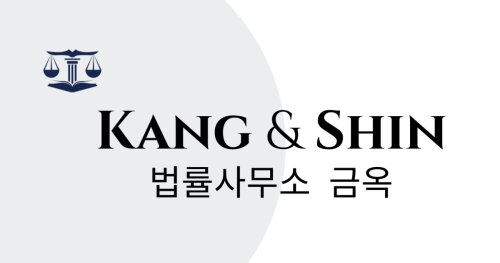Best Hiring & Firing Lawyers in South Korea
Share your needs with us, get contacted by law firms.
Free. Takes 2 min.
Or refine your search by selecting a city:
List of the best lawyers in South Korea
About Hiring & Firing Law in South Korea
Employment relations in South Korea are governed by a complex framework of laws and regulations designed to protect both employers and employees. The Labor Standards Act (LSA) is the primary statute, setting minimum standards for employment terms such as working conditions, wages, and dismissal. Due process in employee termination and fair treatment during hiring practices are emphasized, with several other regulations supporting these principles, such as the Equal Employment Opportunity Act and the Employment Contract Act.
Why You May Need a Lawyer
Individuals or businesses may require legal assistance in hiring and firing for various reasons, including:
- Ensuring compliance with stringent labor laws during the recruitment and dismissal processes.
- Handling disputes that arise from unfair dismissal claims or discriminatory hiring practices.
- Drafting or reviewing employment contracts to ensure they meet legal requirements.
- Navigating complex issues related to layoffs, redundancy, or severance packages.
- Negotiating disputes that involve interpretation of employment clauses or compensation.
Local Laws Overview
Key aspects of local laws relevant to hiring and firing in South Korea include:
- Contractual Obligations: Employment contracts must clearly outline duties, wages, working hours, and other essential terms. Amendments require mutual consent.
- Non-Discriminatory Practices: The law prohibits discrimination based on gender, age, disability, or other status at all stages of employment.
- Termination Regulations: Employees can only be dismissed for valid reasons such as economic hardship or employee misconduct, and proper procedures must be followed.
- Severance Pay: Employees who have worked over one year are entitled to severance pay calculated based on their tenure and average wages.
- Workplace Harassment: Strict guidelines require employers to prevent workplace bullying and harassment, with mandatory investigation and reporting processes.
Frequently Asked Questions
1. Can an employee be dismissed without cause in South Korea?
No, an employee cannot be dismissed without a just cause as recognized by South Korean employment laws, which aim to protect job security.
2. Are non-compete clauses enforceable in South Korea?
Yes, but they must be reasonable in scope concerning duration, geographical area, and the employee’s responsibilities.
3. What is the minimum notice period for termination?
The LSA requires a minimum notice period of 30 days or payment in lieu of notice unless the employee is dismissed for serious misconduct.
4. How are employment disputes typically resolved?
Disputes may be resolved through mediation, arbitration, or by filing a lawsuit in labor courts or the National Labor Relations Commission.
5. What constitutes wrongful termination?
Wrongful termination occurs if an employee is dismissed without just cause or if proper procedures are not followed, infringing on their legal rights.
6. How does the probation period work for new hires?
Probation periods typically last three months, during which the employee’s performance is evaluated, but they are still entitled to basic employment rights.
7. What obligations do employers have regarding workplace safety?
Employers must ensure a safe working environment, provide necessary training, and comply with Occupational Safety and Health Regulations.
8. Is it mandatory to have written employment contracts?
Yes, written contracts are legally required, and they should include details like wages, working hours, job description, and other employment terms.
9. Can an employee refuse overtime work?
Employees have the right to refuse overtime if it is unreasonable or poses health risks, although employers are allowed to request it within legal limits.
10. What rights do employees have during company restructurings?
Employees affected by restructuring are entitled to notice, compensation, and sometimes redeployment opportunities, and must be treated fairly throughout the process.
Additional Resources
Below are some useful resources for those seeking legal advice on hiring and firing in South Korea:
- The Ministry of Employment and Labor (MOEL) provides guidelines and support on labor issues.
- The Korea Labor Institute offers research and publications on employment policies.
- The National Labor Relations Commission assists in dispute resolution involving labor matters.
Next Steps
If you are seeking legal assistance in hiring and firing, consider taking the following steps:
- Consult with a qualified labor lawyer who is experienced in South Korean employment law.
- Gather relevant documents, such as employment contracts, company policies, and records of any disputes.
- Seek advice from legal aid organizations that may offer guidance or representation.
- Use governmental resources, like the Labor Ministry, for initial guidance and understanding of your rights and obligations.
Lawzana helps you find the best lawyers and law firms in South Korea through a curated and pre-screened list of qualified legal professionals. Our platform offers rankings and detailed profiles of attorneys and law firms, allowing you to compare based on practice areas, including Hiring & Firing, experience, and client feedback.
Each profile includes a description of the firm's areas of practice, client reviews, team members and partners, year of establishment, spoken languages, office locations, contact information, social media presence, and any published articles or resources. Most firms on our platform speak English and are experienced in both local and international legal matters.
Get a quote from top-rated law firms in South Korea — quickly, securely, and without unnecessary hassle.
Disclaimer:
The information provided on this page is for general informational purposes only and does not constitute legal advice. While we strive to ensure the accuracy and relevance of the content, legal information may change over time, and interpretations of the law can vary. You should always consult with a qualified legal professional for advice specific to your situation.
We disclaim all liability for actions taken or not taken based on the content of this page. If you believe any information is incorrect or outdated, please contact us, and we will review and update it where appropriate.
Browse hiring & firing law firms by city in South Korea
Refine your search by selecting a city.















